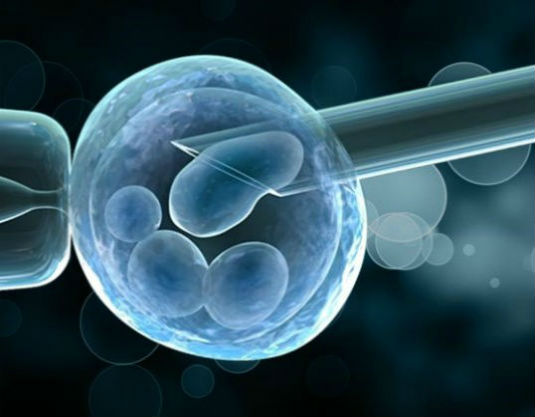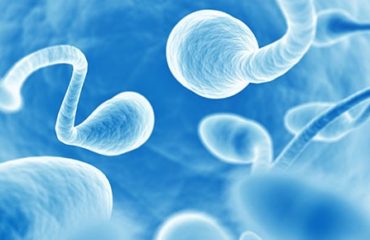Preimplantation Genetic Screening (CGH)
Array CGH (aCGH) is the most well-established of the new generation of pre-implantation genetic screening (PGS) tests. It allows us to comprehensively screen embryos for abnormalities in all 24 chromosomes before transfer. Genetically normal embryos have a higher chance of implantation and the resulting pregnancies have a lower chance of miscarriage. Testing embryos by aCGH may therefore increase the likelihood of pregnancy, reduce the chances of a pregnancy loss, and improve the odds of delivery.
aCGH differs from previous PGS testing as it is able to test every chromosome, rather than a select few, so minimizes further the risk of transferring an abnormal embryo.
We have chosen to work with Reprogenetics for the genetic screening of embryos because as pioneers in the field of genetics and have been responsible for some of the most significant advances in preimplantation genetic diagnosis (PGD) and preimplantation genetic screening (PGS).
The Reprogenetics team has published more than 300 scientific papers concerning embryo evaluation and has received numerous awards in recognition of innovation and diagnostic service. As well as being on the cutting edge of technology, Reprogenetics also has the greatest practical experience, having performed more than 45,000 cycles of PGD in laboratories situated on four continents. The Reprogenetics laboratory in the UK is fully accredited (CPA) and provides access to the very latest methods for the genetic evaluation of sperm, eggs and embryos.
aCGH is a three-step process:
Initially an IVF cycle using PGS begins in the same way as any other, with the stimulation of the ovaries to produce eggs, followed by their collection and fertilisation
When the developing embryos are five days old a few cells are microsurgically removed from each by our highly trained biopsy practitioners and taken for testing (alternatively a single cell is sometimes taken when the embryos are just three days old). The cells are placed in special test-tubes and sent by courier to the Reprogenetics laboratory. The embryos under analysis do not leave the IVF clinic, they are either returned to the incubator or cryopreserved (frozen) until the test results are available.
The cells are each analysed independently by aCGH and the test results indicate how many copies there are of each chromosome, revealing any abnormal embryos. Results are available to us within 24-36 hours although this may reduce to within 4 hours in the near future with the introduction of the ultra-rapid PGS protocol. We can then choose appropriate embryos for transfer based on these genetic results as well as the standard embryological assessment of the embryos No test is 100% accurate, so following any genetic screening we recommend that patients who become pregnant undergo prenatal testing.
Preimplantation Genetic Diagnosis (PGD)
PGD is a method of testing embryos produced during a treatment cycle for particular genetic disorders before they are transferred to the uterus and is now available for virtually all single gene disorders. A single gene disorder is the result of a single mutated gene and there are estimated to be over 4000 human diseases caused by single gene defects e.g. Huntington’s disease, neurofibromatosis, cystic fibrosis and sickle-cell anemia.
The aim of PGD is to provide couples at high-risk of passing on an inherited disorder to their children with an improved chance of having an unaffected pregnancy.
PGD dramatically reduces the likelihood that an affected fetus will be detected during prenatal testing and therefore decreases the probability that parents will face the difficult decision of whether or not to terminate a pregnancy.
We have chosen to work with Reprogenetics for the genetic screening of embryos because as pioneers in the field of genetics and have been responsible for some of the most significant advances in preimplantation genetic diagnosis (PGD) and preimplantation genetic screening (PGS). The Reprogenetics team has published more than 300 scientific papers concerning embryo evaluation and has received numerous awards in recognition of innovation and diagnostic service. As well as being on the cutting edge of technology, Reprogenetics also has the greatest practical experience, having performed more than 45,000 cycles of PGD in laboratories situated on four continents. The Reprogenetics laboratory in the UK is fully accredited (CPA) and provides access to the very latest methods for the genetic evaluation of sperm, eggs and embryos.
Who might benefit from PGD?
Any couples who know they are carriers of a serious inherited condition may be interested in PGD. Many of those who request PGD are fertile and undergo IVF for the sole reason that they wish to avoid pregnancy termination.
PGD is a four-step process:
Step 1: Confirmation and Licensing
As long as a genetic disease has an identified mutation, PGD should be possible. Following appropriate genetic counseling and in conjunction with the scientific team at Reprogenetics we will determine if PGD can be done and that the HFEA licenses the testing of this condition. An HFEA license has to be in place for each condition. It may be necessary to apply for a license for your particular condition and this process can take up to 16 weeks.
Step 2: Probe development
The preparation for PGD involves the design of a specific custom-made probe for a couple that will look for the single gene in embryos produced during a treatment cycle. This may require testing of blood or buccal cells from the couple and potentially other affected family members. The time required for preliminary testing is extremely variable and may take a number of weeks depending on the disorder.
Step 3: Stimulation and Embryo Biopsy
The ovaries are stimulated and eggs are collected and then fertilised using intracytoplasmic sperm injection (ICSI). The use of ICSI reduces the risk of DNA contamination derived from sperm. A single cell can be removed for testing three days after fertilisation. Alternatively, 5-10 cells can be taken on day-5 (blastocyst stage). The cells are placed in test-tubes and sent to Reprogenetics by courier. The embryos under analysis do not leave the IVF clinic, they are either returned to the incubator or cryopreserved until test results are available.
Step 4: Genetic testing
The cells are each analysed independently using the developed probes and the results available to us within 24-36 hours. We can then choose appropriate embryos for transfer based on these genetic results.
No screening test is 100% accurate, so following any genetic screening we recommend that patients who become pregnant undergo prenatal testing which will reveal whether the genetic diagnosis was correct, and confirm whether or not the foetus is unaffected by the specific disease or mutation.
 Ελληνικα
Ελληνικα  English
English 




